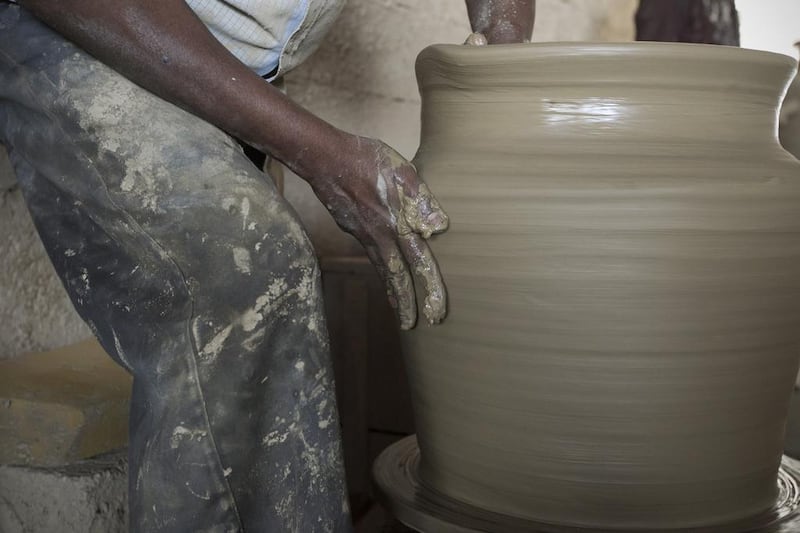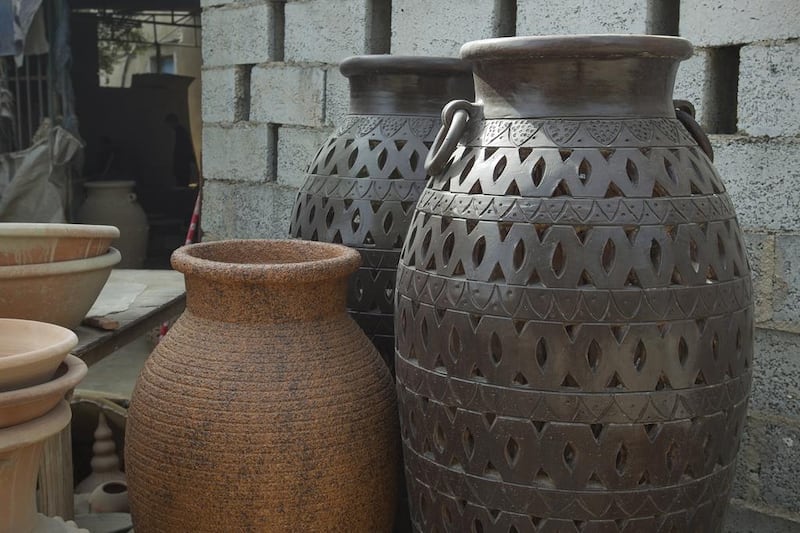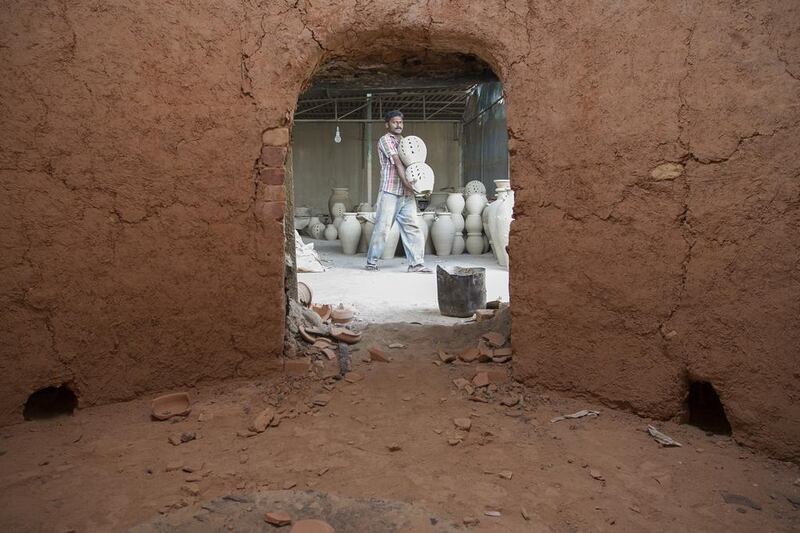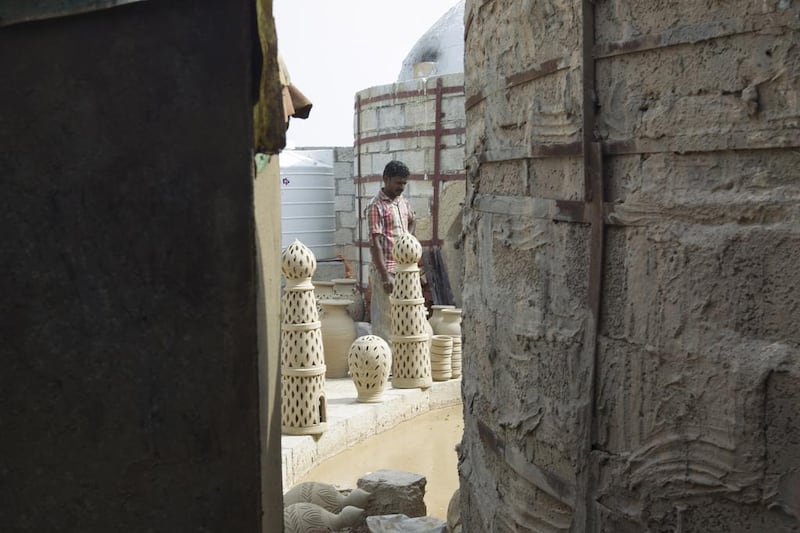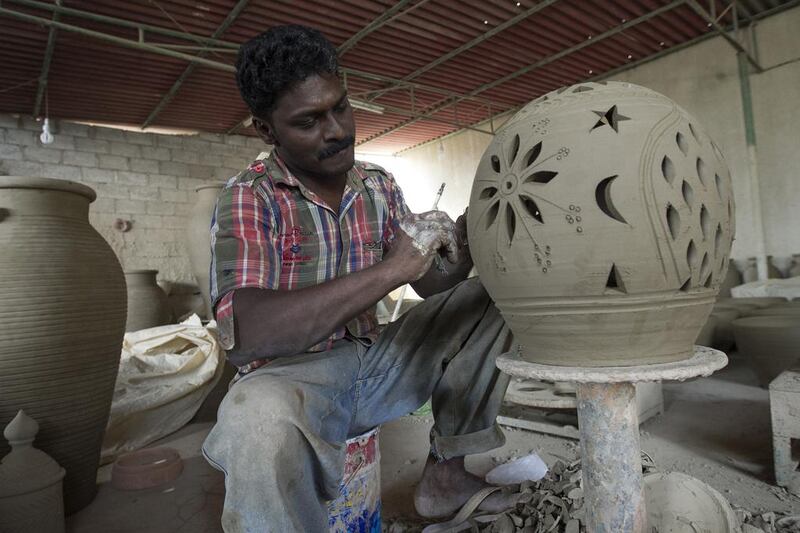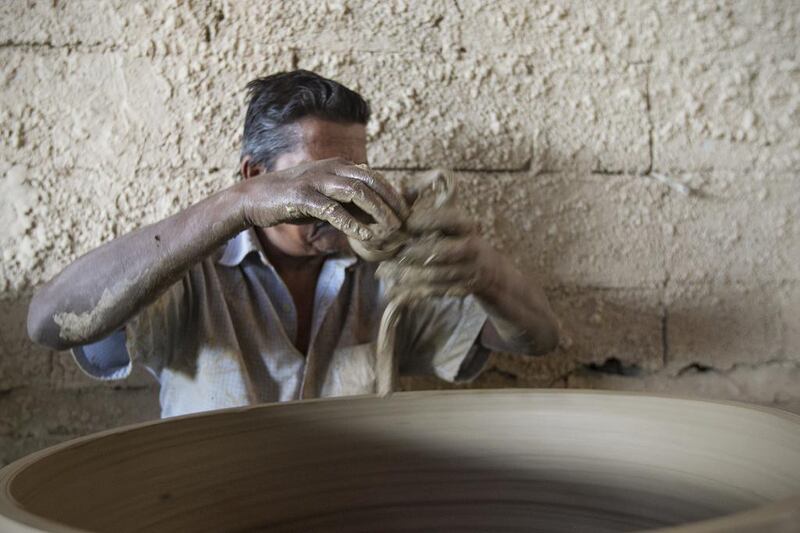SHARJAH // Chinnavaran K V began moulding pottery as a child in Kerala, where he grew up.
Now 62, he is a master craftsman at Al Fakher Pottery Works in Al Dhaid, a town in Sharjah, where he designs all of the pieces produced by the company’s nine employees, who are all also from Kerala.
Al Fakher Pottery Works provides many of the pieces found in the markets on the UAE’s east coast as well as in shops throughout the country. The company also exports its goods to Oman, said Joseph Thomas, one of the brothers who run the company along with their father, Karukayil.
Pottery is seen as one of the UAE’s oldest and most important crafts, in ancient times providing people living in the region’s dry climate with storage for food, water, crops, medicine and even burial tombs for children, said Nasir Al Darmaki, curator at the Sharjah Archaeology Museum.
The oldest pottery found here dates from the Stone Age, and ancient pieces contain the earliest known examples of writing found in the country.
Karukayil Joseph Thomas started Al Fakher Pottery Works 32 years ago, said his son, Crips Thomas, 32. The shop and pottery is located on the Al Dhaid to Fujairah road. “Business is good,” the son said. “Most of the locals like these clay pots.”
Mr Chinnavaran has been with the company for 23 years, said Mr Thomas. He started on small pots and then went to Chennai to learn more about the craft, before coming to the UAE.
“He’s a very good technician,” said Mr Thomas. “He’s very interested in this.”
The employees typically stay with the company for seven or eight years, Mr Thomas said, going home for two months every two years.
The craftsmen can produce 100 small pots a day, while the largest pots – created in three separate pieces that are then moulded together – can take a full working day.
Chunks of clay are cut off from large shipments, most of which are brought in from Pakistan, with only a small proportion of the clay being locally sourced.
After moulding, the craftsmen cut designs into the pieces, or stack them straight into one of two kilns to be dried for five days.
It can take as little as 10 minutes for craftsman Rajesh Rajal, 37, to slice and etch elaborate designs with flower petals, moons and stars into one small pot.
The smaller pots sell for Dh50, while larger pieces can range from Dh500 to Dh1,000, said Ani Krishna, 33, who works at the company with his brother and has been a craftsman for 20 years.
The company used to have an outlet in Thoban, a few kilometres down the road across the Fujairah border, said Mr Thomas.
Now located in Al Dhaid, the company is the major pottery supplier in the area, he said.
Another nearby manufacturer, Thoban Pottery Factory, appears to have been abandoned, with broken pottery pieces and dust covering the floors of the disused workshop that operated in the small town, located about 44 kilometres from Fujairah.
Though pottery is now mostly used for decoration, Mr Al Darmaki said its history provides a window, as with other traditional crafts, into the lives of our forefathers. Differences in designs and materials show the various styles found across the UAE and the many trade networks of ancient civilisations.
The importance of pottery for ancient people shows in the fact that people once included the crafts in their burial tombs, Mr Al Darmaki said. “That means it is something very special.”
lcarroll@thenational.ae
